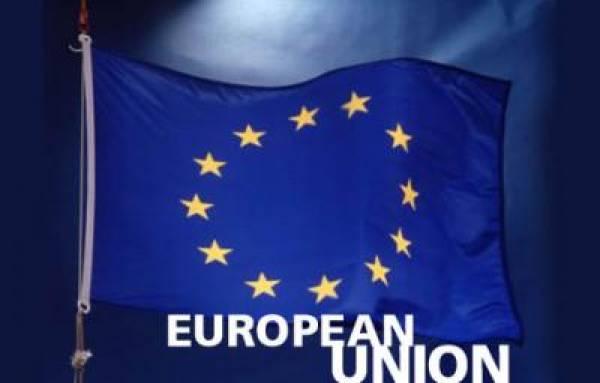European Union to Meet With US Congress Regarding Internet Gambling

Congress and members of the executive branch will be visited by a team of European Union investigators this week, headed by senior E.U. trade official M. Jean-Francois Brakeland, head of the European Commission's dispute settlement office. The E.U. delegation is looking into allegations that the U.S. Department of Justice (DOJ) breaches international treaties by continuing to enforce WTO-violating laws against E.U. businesses and individuals who once, but no longer, participated in the U.S. online gaming industry. The E.U. delegation will be seeking answers from the U.S. before taking decisions on how best to protect E.U. interests, including to the possibility of implementing blocking-legislation to prevent U.S. enforcement in Europe; opening WTO proceedings on U.S. enforcement of its laws versus conflicting international commitments; and consideration of the sanctions which would be sought against U.S. industry if no amicable and fair solution can be found.
The provision of Internet gambling remains protected by commitments that the U.S. has made under the treaties policed by the World Trade Organization (WTO). The U.S. has already been found to be in violation of those commitments and is in the process of seeking to withdraw them. Even if it is successful in doing so, the effort would only effect future trade rather than past activity. The E.U. does not accept that it is legitimate for the U.S. to further renege on its trade commitments by continuing to take retrospective and discriminatory enforcement action, especially against E.U. entities which have long since ceased their acceptance of any U.S. business. If the investigators conclude that DOJ prosecutorial policies and action violate international trade rules, the E.U. is likely to launch a fresh WTO dispute against the U.S. with further consequences for the reputation and standing of the U.S. in the international community.
"This is a hugely significant piece of the fact-finding mission whose existence reflects a major point of tension between the U.S. and Europe over the integrity of international trade commitments," said Dr. Joseph Weiler, an international trade expert and professor at NYU School of Law who advises the industry. "It is a shame that the E.U. has to go this far to seek a solution to such an unnecessary and avoidable dispute that, if not solved, will have wide-reaching consequences for the U.S. and the systems it benefits from and needs to maintain."
Dispatched by the European Commission in Brussels, the team of investigators will arrive in Washington on September 15 meeting with the offices of the United States Trade Representative (USTR), and Department of Justice (DOJ) as well as members of Congress who have relevant committee responsibility or who have demonstrated an interest in seeing the executive branch account for its policies and decision-making.
"We have no doubt that U.S. prosecutorial policy as regards E.U. online gaming operators is a clear breach of its WTO commitments and we applaud the E.U. trade office for taking seriously the concerns of the online gaming industry in Europe," said Clive Hawkswood, the Chief Executive of the Remote Gambling Association (RGA.) "The E.U. industry has had to accept the huge losses caused by the U.S. repudiation of its WTO commitments. What can't be accepted is that companies and individuals, who respected Congress in 2006 and ceased taking U.S. business, should still be under the threat of criminal enforcement action today for conducting trade that they were entitled to do under the terms of the WTO agreements -- that simply cannot be right."
Nao Matsukata, a respected trade advisor in Washington and former senior trade policy official under the earlier Bush administration, says, "The U.S. may find itself in a difficult political situation with Brussels. The 'disconnect' between trade and law enforcement policy compounds the matter, and risks leaking into other areas of the transatlantic relationship. The current course of U.S. action may also expose U.S. business to retaliatory measures in other countries if more WTO members adopt these types of policies and even now we are seeing the consequences, for example, in current cases with China. Greater congressional oversight of trade policy is probably inevitable to ensure that executive branch agencies maintain the proper regard for the nation's treaty commitments and priority interests."
Lode Van Den Hende of Herbert Smith law firm, for the Remote Gambling Association on this matter, said, "It is one thing to change the rules going forward, but you can't change them for the past or the whole system collapses. The E.U. is currently considering all options available to it for use if needed, including implementing blocking-legislation which would prevent any E.U. entity cooperating with U.S. authorities in seeking enforcement in Europe whether it be extradition, asset-seizure or otherwise. It is a shame that this unnecessary and avoidable dispute has to go this far. We are still hopeful that sense will prevail."
Background
The E.U. investigation began in March 2008, prompted by a complaint under Europe's Trade Barriers Regulation ("TBR"), which allows the E.U. to take legal action to enforce its commercial interests on behalf of its 27 member states. The complaint was made in December 2007 by the Remote Gaming Association, a London-based trade group that represents approximately 30 online gaming operators in Europe. The complaint however relates to enforcement activity that effects companies, banks and other E.U. businesses and the individuals (executives, major shareholders etc.) that are associated with them.
The WTO cases in this area began in a case brought by Antigua and which produced 3 separate rulings (including Appellate panel in 2005 and culminating in an implementation panel in 2007) confirming that the U.S. was in violation of its commitments under the General Agreement on Trade and Services (GATS) by restricting non-U.S. businesses while leaving U.S. businesses to operate uninterrupted in this highly lucrative market.
During the course of the Antigua case, the U.S. Congress passed the Unlawful Internet Gambling Enforcement Act in October 2006 (UIGEA) at which point the leading E.U. operators and their banking and other business partners ceased accepting U.S. customers, at the cost of billions of dollars loss of business.
In May 2007 and in response to the WTO decisions in the Antigua case, the U.S. made the unprecedented announcement that, instead of creating compliant policy on Internet Gambling, that it would withdraw its commitments from the GATS beginning a compensation negotiation with several WTO members affected, including the E.U. While agreement was eventually reached with the E.U. for removing the gaming commitment going forward, the E.U. does not agree (and nothing in the E.U./U.S. agreement or the WTO rules permit) that the U.S. is entitled to change the commitments retrospectively to justify enforcement against past activity. In addition, there has been a question-mark over the integrity of the E.U./U.S. agreement due to the lack of congressional ratification of any new commitments introduced by USTR in place of the gambling commitments.
This is the second attempt by the E.U. to make the visit - the first being postponed by USTR in June citing the need for more time to prepare - and is now being headed up by Jean-Francois Brakeland, the head of the relevant unit in the E.U. Commissions Directorate General on Trade. Overall responsibility for E.U. External Trade is held by Commissioner Mandelson who is the USTR (Susan Schwab)'s counterpart in Europe.
Other parties with interests at stake who are watching with interest include major banks and other participants who are caught up in the enforcement policy of certain offices of the Department of Justice with respect to activity that ceased after UIGEA was enacted.
About the Remote Gambling Association
The RGA represents most of the world's largest, licensed, and stock market-listed remote gambling companies and provides the industry with a single voice on all the issues of importance to regulators, legislators, and key decision makers around the world. For more information, please visit www.rga.eu.com













